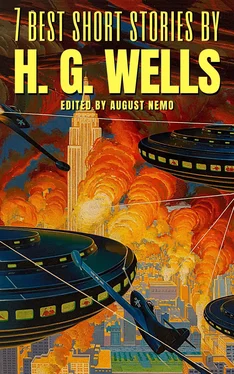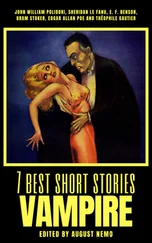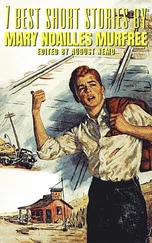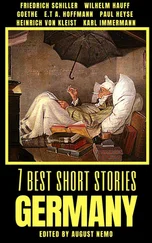And yet, despite this occasional exhibition of temper, The New Machiavelli is a most illuminating book. It reveals with extraordinary clearness the Wells of that period; but it also gives us a sight of the spirit in him that does not change. All his books, romances, novels and essays indicate a gradual process of growth; if we were to apply any label to him, we should inevitably land ourselves in confusion. He is nothing "in the first place" but a man with an intense desire to understand life. As he says in this book: "A human being who is a philosopher in the first place, a teacher in the first place, or a statesman in the first place, is thereby and inevitably—though he bring God-like gifts to the pretence—a quack." But while he may dissociate himself from any clique, and disclaim any fixed opinion that might earn for him the offensive and fiercely rejected label, he nevertheless presents to us one unchanging attitude in these very refusals. "I'm going to get experience for humanity out of all my talents—and bury nothing," says Remington; and that purpose is implicit in every book that Wells has written. He is an empiric, using first this test and then that to try the phenomena of life; publishing the detail of his experiment and noting certain deductions. But while he may offer a prescription for certain symptoms, he gives us to understand that he is only diagnosing a phase in human development; that he is seeking an ultimate which he never hopes to find, and that the deductions he draws to-day may be rejected to-morrow without a shadow of regret. He would be constant, I think, only in his inconstancy to any criterion of present conditions as applicable or likely to be applicable to the future; he sees life as a dynamic thing in process of change and growth. "All the history of mankind," he writes, "all the history of life has been and will be the story of something struggling out of the indiscriminated abyss, struggling to exist and prevail over and comprehend individual lives—an effect of insidious attraction, an idea of invincible appeal." And it is for this reason that he is so eager to battle with, annoy, disarrange and reconstruct that rule-of-thumb world he censures so steadily; he is fighting the assumption of a static condition which he knows to be impossible.
And for a moment in The New Machiavelli, and again in his next book, Marriage, he has a passing vision of some greater movement of which we are but the imperfect instruments. He develops and then drops the idea of a "hinterland," not only to the individual mind but to the general consciousness. The "permanent reality," he calls it, "which is never really immediate, which draws continually upon human experience and influences human action more and more, but which is itself never the actual player upon the stage. It is the unseen dramatist who never takes a call." And in another place he writes in the same connection: " ... the ideas go on—as though we are all no more than little cells and corpuscles in some great brain beyond our understanding."
We come again to a hint of that explanation at the end of Marriage, published in 1912. The story, reduced to the barest outline, is that of the relations of Trafford to his wife. It is not complicated by any sexual temptations or jealousies, but it gradually evolves the integral problem of the meaning of life.
Trafford, before his engagement to Marjorie Pope, and for a year or two after his marriage, was engaged in research work. His speciality was molecular physics and he was a particularly brilliant investigator. That research, with all the possibilities that it held of some immense discovery of the laws that govern the constitution of inorganic and progressively, perhaps, of organic, matter, was sufficient to engross his mental energies, to give him a sense of satisfaction in life; but his six hundred pounds a year proved insufficient to satisfy the demands of Marjorie's claim to enjoyment. She was not a mere type of the worldly-minded woman. She represents, indeed, the claim of modern women for a distinctive interest and employment not less urgent and necessary than the interests and employments of men. And when she failed, as she plainly must have failed, to find any such occupation, her sense of beauty and her justifiable demand for life found an outlet largely in shopping, in entertaining, in all such ephemeral attractions and amusements as women in her class may seek and reject. That way of escape, however, soon raised financial obstructions to Trafford's work. He had to find a means for increasing his income, and came at last and inevitably to the necessity for making more money and continually still more. The road to wealth was opened for him and he took it by sacrificing his research work, but when the economic problem had been triumphantly solved, he could not return to his first absorption in the problems of molecular physics. Life pressed upon him at every moment of the day, he had been inveigled into a net.
The manner of Trafford's escape from the thing that intrigued him has been severely criticised. After I had first read the book I too was inclined to deprecate the device of taking Trafford and Marjorie into the loneliness of a Labrador winter, in order to set them right with themselves and give them a clearer vision of life. But I have read Marriage twice since I formed that premature judgment, and each time I have found a growing justification for what at first may seem a somewhat whimsical solution to the difficulties of an essentially social problem.
But in effect this is the same specific that I upheld in my comment on the romances; it illustrates the need felt by a certain class of mind for temporary withdrawal from all the immediate urgencies and calls of social life; the overwhelming desire to see the movements and intricacies of human initiative and reactions, from a momentarily detached standpoint. And Mr Wells has offered us a further commentary on the difficulties of this abstraction, by withholding any vision from Trafford until he was finally isolated from Marjorie, and even from any physical contact with the movement of what we call reality, by illness and fever. Only then, indeed, did he touch the vital issues. I find the statement of this ultimate thing, vaguely phrased in Trafford's semi-delirium, presenting another expression of the thought quoted from The New Machiavelli; the conception of humanity as an instrument. "Something trying to exist," he says, something "which isn't substance, doesn't belong to space or time, something stifled and enclosed, struggling to get through." And later he repeats: "It struggles to exist, becomes conscious, becomes now conscious of itself. That is where I come in as a part of it. Above the beast in me is that—the desire to know better, to know—beautifully, and to transmit my knowledge. That's all there is in life for me beyond food and shelter and tidying up. This Being—opening its eyes, listening, trying to comprehend. Every good thing in man is that—looking and making pictures, listening and making songs.... We began with bone-scratching. We're still—near it. I'm just a part of this beginning—mixed with other things. Every book, every art, every religion is that, the attempt to understand and express—mixed with other things."
I have reached something like a climax with this passage; a climax that I would willingly maintain if it were possible, inasmuch as it holds a representation of that unchanging influence which I find as an inspiration and a force behind all H.G. Wells' books. Necessarily this vital inspiration is, as he says, "mixed with other things"; he has had to find a means to express it, and our means of expression is limited not only by our own powers but in a large degree by the limitations of the audience addressed. Moreover H.G. Wells' art represents him in that it is a practical art. He is, in an unspecialised sense, a pragmatist. He comes back from his isolations to find in this world all the substance and potentialities of beauty both in outward appearance and in conduct. And he is not content to vapour of ideals. He recognises that the stuff of admiration and desire that animates his own being is present throughout humanity. Only the sight of it is obscured by all those stupidities and condescensions to rule-of-thumb that he attacks so furiously. Those are the impediments that he would clear away, and he acknowledges that they stand between him and his own sight of beauty. He is compelled always to struggle—and we can see the signs of it in all he writes—with his own weakness and limitations; criticising himself as he satirises the thing condemned, but striving without ceasing to serve the purpose of that which he knows is "struggling to exist." This, to me, is the spirit of H.G. Wells, and I find it a spirit that is as admirable as it is human....
Читать дальше

![Коллектив авторов - Best Short Stories [С англо-русским словарем]](/books/26635/kollektiv-avtorov-best-short-stories-s-anglo-thumb.webp)










